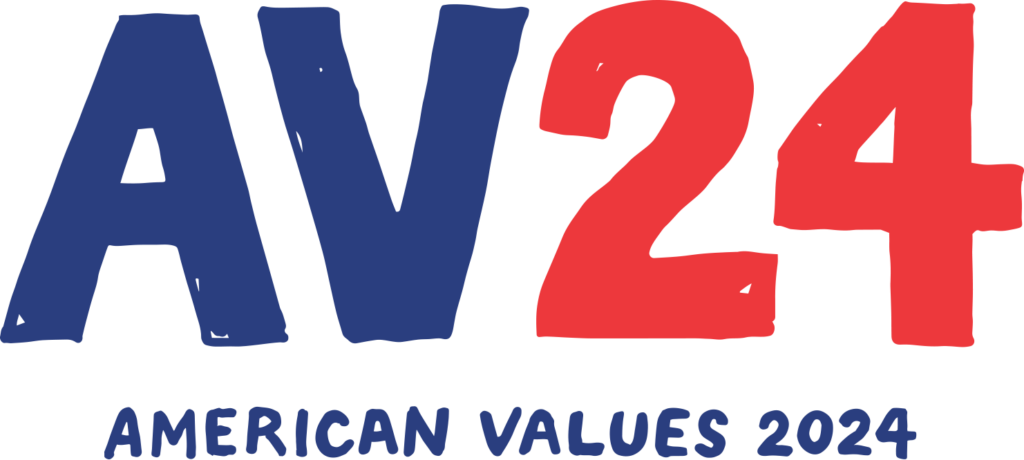Why Is The New York Times Filtering Robert F. Kennedy Jr.?
American Values 2024 | March 26, 2024
“I am shocked! Shocked to find that gambling is going on in here.”
—Captain Renault, Casablanca
An interview with the presidential candidate threatening to change the election’s course,” Herndon’s interview for his show The Run-Up begins cordially enough, with softball questions about Kennedy’s uncle and father. It morphs into an attack ad for democrats against RFK Jr., fearful that his presence in the race will throw the election to Trump.
Herndon and his producers break into the interview when Kennedy begins to explain to the host (in answer to his question) how he grew interested in vaccine safety after reading studies about dangerous levels of mercury in freshwater fish. “I said I didn’t want to talk about the science, but that’s where this ended up going,” Herdon says in a voiceover Kennedy can’t hear or contest. He proceeds to give the NYT’s official line about mercury in fish, vaccines and autism.
A few minutes later, Herndon again interrupts Kennedy after he discusses his research and skepticism of official government narratives, saying “this is a man whose life has been defined by mistrust.”
A third voiceover interruption comes when Kennedy explains how he arrived at the belief that his uncle and father were assassinated as part of a conspiracy, to which Herndon snidely says, “For the record…” and proceeds to give the NYT’s official line on those murders.
Again, Kennedy was not privy to what the host voiced over later in editing, nor did he have the opportunity to respond. (See reader comments below.)
Of course, the NYT is an instrument of the Democratic Party. Most Americans know this, and many actively or passively approve of such biased support.
The Times is terrified that Donald Trump will win, and proceeds as if this justifies the most odious journalistic practices to discredit all third-party candidates, especially Kennedy, whom they consider the greatest threat to spoiling their chances.
In his podcast, Herndon is so convinced of his own line of attack (that Kennedy is a “spoiler”) that he tries to force it into his hit piece no matter how Kennedy responds to his questions.
When I worked at the NYT, I was well aware of what they wanted and what would get my story on the front page. Nobody had to tell me what to write. Reporters learn this by osmosis. Fortunately, I was very rah-rah about NYC, which is what the Times wanted at the time. But when I exposed one of their most loyal advertisers, Tiffany, as taking unwarranted tax benefits by threatening to move out of town, the name of the famous store was buried, moved from the first paragraph lede on the front page to the seventeenth paragraph, deep inside the paper.
The Times puts on a show of objectivity. Still, in the end, the subjects they cover, the headlines, and the placement clearly spell out an agenda that supports the goals of a Uniparty, composed of Democrats and Republicans. Their decades-long ties with the CIA and State Department have led them to approve and support many disastrous foreign policy objectives favored by the Military Industrial Complex, including the wars in Iraq, Afghanistan, Bosnia, Liberia, and Ukraine.
A former editorial page editor of The New York Times, James Bennet, recently argued that the paper’s pledge to pursue the news “without fear or favor” is no longer being honored. Neither is the paper’s promise to “invite intelligent discussion from all shades of opinion.”
Instead, recent pressure from left-leaning journalists and editors who “do not believe readers can be trusted with potentially dangerous ideas or facts” is undermining the paper’s claims to independence. Bennet believes that Times editors and journalists have forfeited what has always been most valuable about their work: their credibility as arbiters of truth and brokers of ideas, which had lasted for more than a century.
The Times’s problem has metastasized from liberal bias to illiberal bias, from an inclination to favor one side of the national debate to an impulse to shut debate down altogether.
That said, the Times overall has some of the best reporters in the world, and if you dig deep into many stories, and understand the bias, readers can often find kernels of truth that the paper doesn’t want exposed.
Dozens of scalding comments from Times readers and listeners echo many of these criticisms regarding the unfairness of the Kennedy podcast. Jenney Steves wrote, “you prove his credibility by talking over him.”
Another Times reader asked, “Is this an interview or an editorial?” And Jeff Haddix commented, “This interviewer has no shame.”
Other comments included:
“The editorial comments by the host are highly biased in favor of big business, government, and Democratic party.”
“The fact that you cut him off mid-sentence, turned him down, and talked over him shows that the interview is in bad faith.”
“What kind of an interview is this? where the interviewee isn’t allowed to talk, and the host literally has a voiceover to censor the interviewee.”
“LOL it’s so funny how they do a voice-over on an interview”
And finally, “This is embarrassing for the NYT.”
Blake Fleetwood was a reporter for The New York Times and has written for The New York Times Magazine, New York Magazine, The New York Daily News, The Wall Street Journal, USA Today, The Village Voice, The Atlantic, and Washington Monthly on various issues. He was born in Santiago, Chile, and came to the US at the age of four. email: [email protected]
